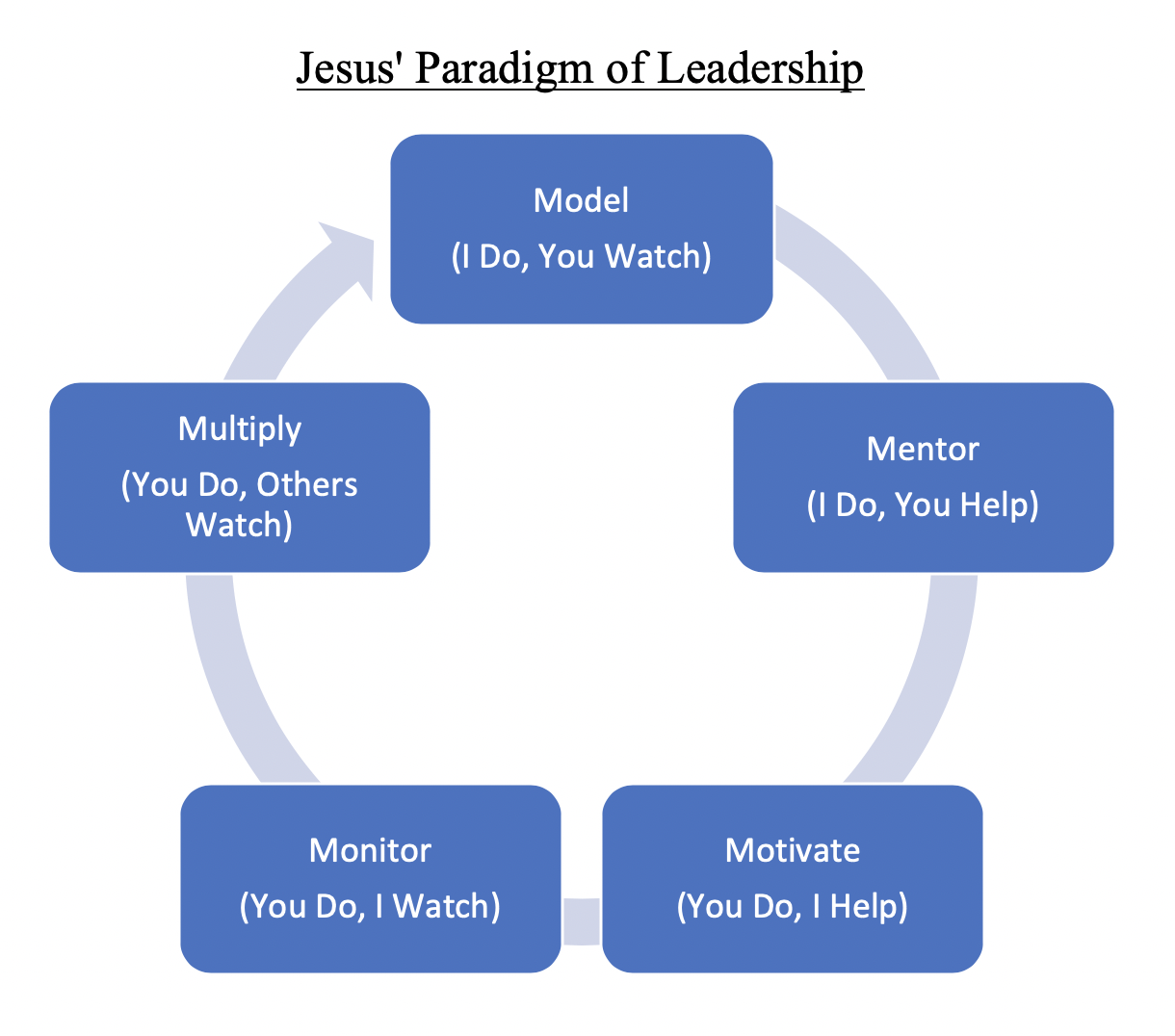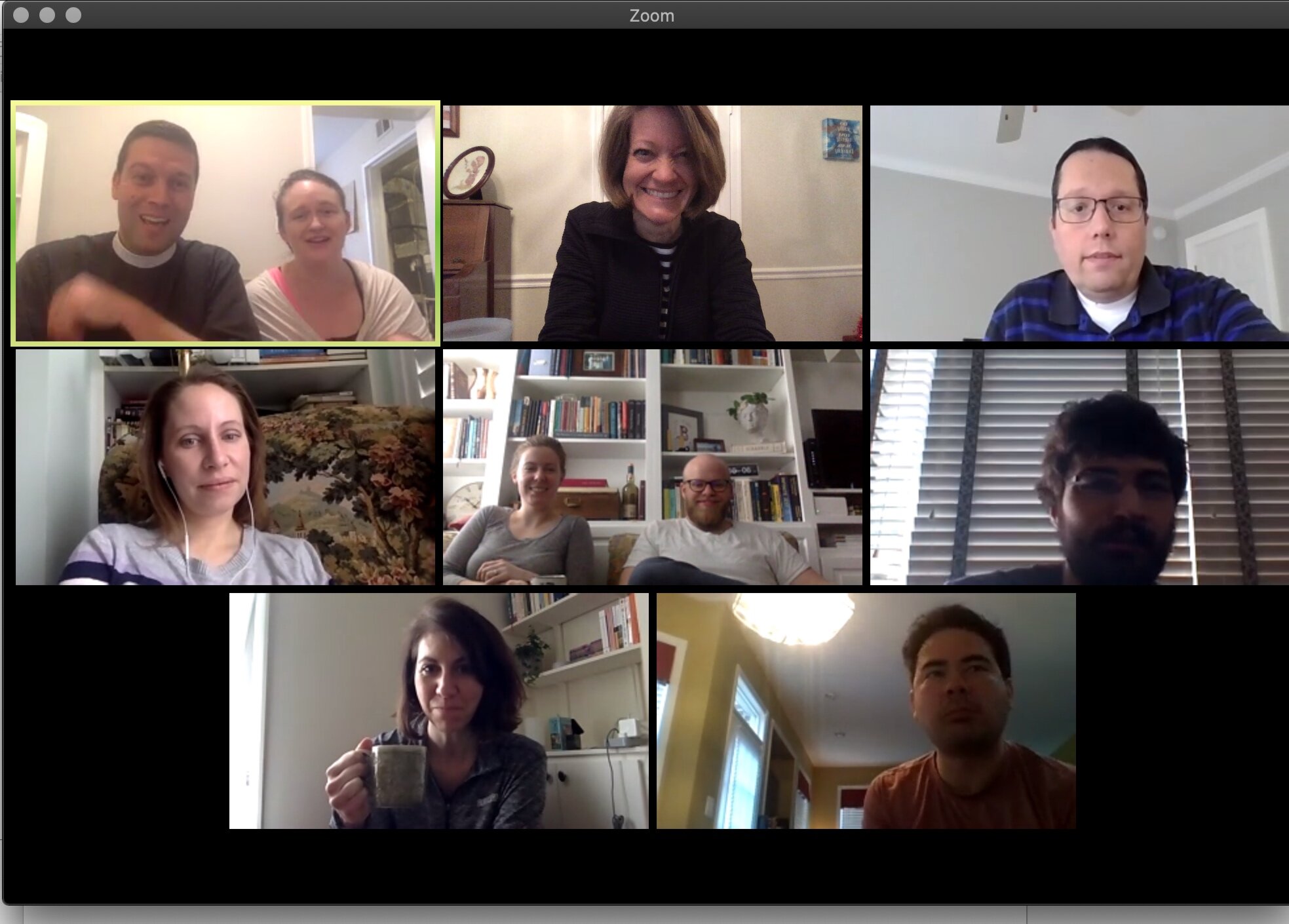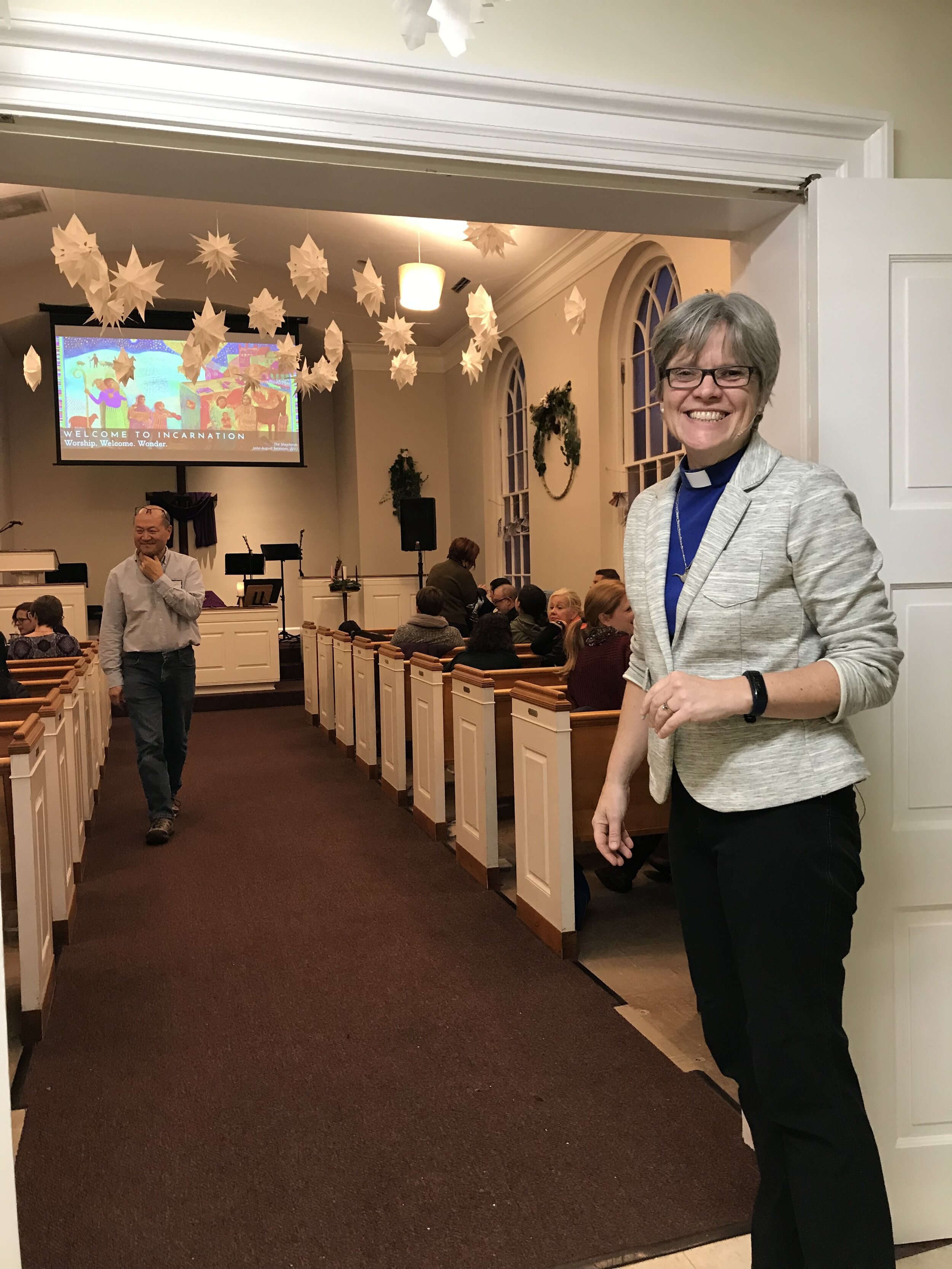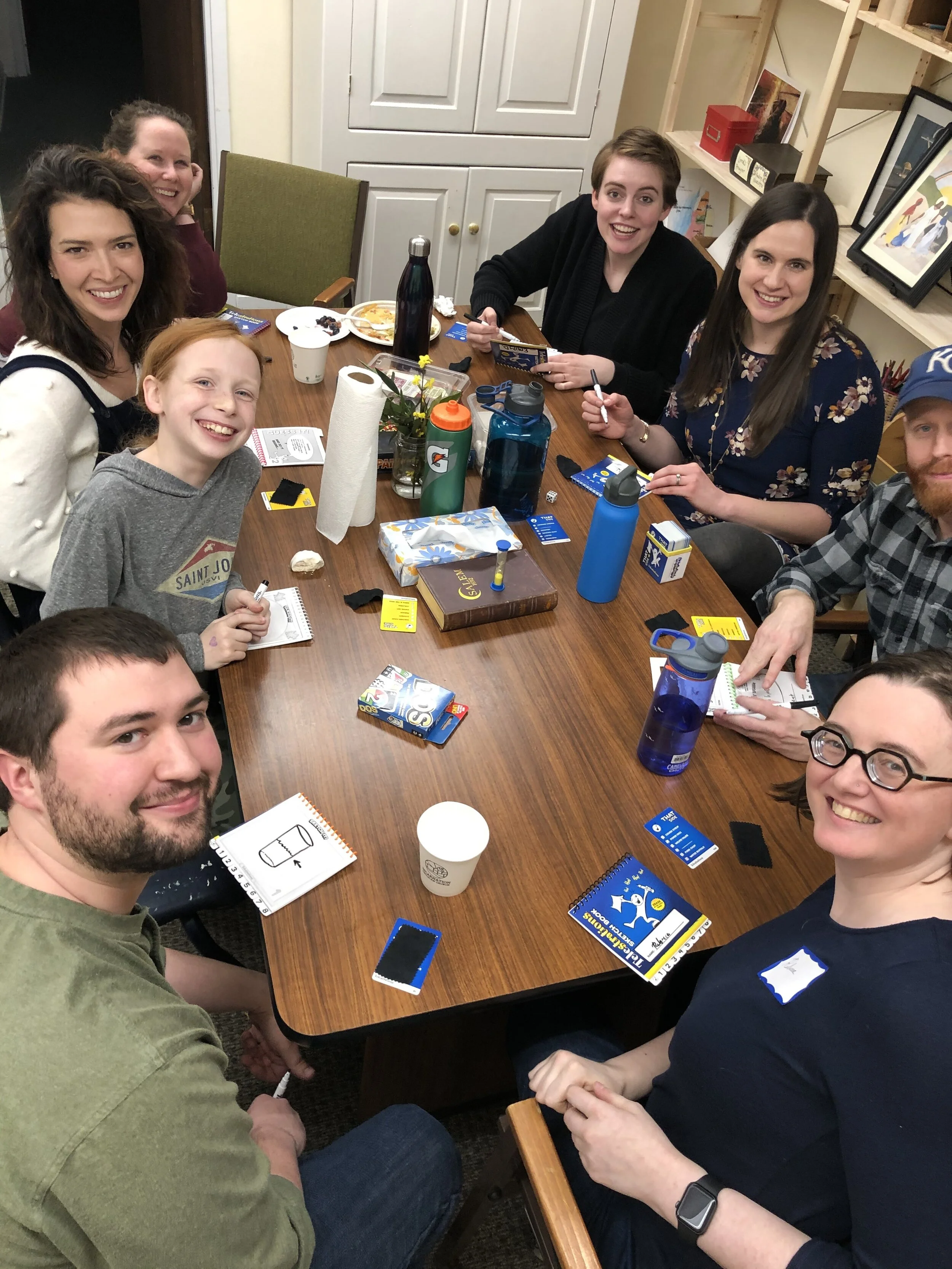Lunch Session: Partnering in Church Planting: A Conversation with our Canon
Since taking on the role of Canon for Church Planting, I have had lots of questions about partnering in this important space of mission. Join me for lunch to hear about the many different pathways a church or mission can take in partnering in church planting—bring your questions and let’s talk! Led by the Rev. Tuck Bartholomew, DOMA’s Canon for Church Planting.
Synod 2021: Approval of New Churches
Approval of New Churches:
Congregations: Christ Church, Accokeek, MD Church of the Ascension, Kearneysville, WV
Mission: Corpus Christi Anglican Church, Franconia-Springfield, VA
Approval of New Churches:
Congregations: Christ Church, Accokeek, MD Church of the Ascension, Kearneysville, WV
Mission: Corpus Christi Anglican Church, Franconia-Springfield, VA
Synod 2021: Great Commission Committee Report
Great Commission Committee Report: The Rev. Canon Tuck Bartholomew, Canon for Church Planting
Leadership Pipeline
“How does a young man like Laurence find the courage to speak the truth and take a stand for righteousness, knowing it will lead to suffering and death? In a word: Discipleship.”
August 2020
Dear Friends,
As I write this letter to you, the Church is celebrating the feast day of St. Laurence, the young deacon who was martyred with six other deacons by Emperor Valerian in 258 A.D.. Laurence was in charge of distributing alms to the poor and indigent in Rome. When commanded to turn over the wealth of the church, he requested and received a 3-day reprieve to travel around Rome to gather the church’s riches. He used this time to give away as much of the church’s property as possible to those in need, then returned and presented a multitude of poor, crippled, blind, and suffering, saying that these were the “true treasures” of the Church and her “crown.”
How does a young man like Laurence find the courage to speak the truth and take a stand for righteousness, knowing it will lead to suffering and death? In a word: Discipleship. Laurence’s faith was born and grounded by his parents, who were also martyred. He grew and was taught by a great teacher of the day, who later became Pope Sixtus II. This great teacher saw in Laurence and his companions eager hearts and minds that needed guidance, which he gladly gave. Church planters in our day refer to this as a “leadership pipeline.”
Like the early church, our diocese places great value in raising up our young people and shaping their faith and life. This summer, eight young men and women served as ministry interns in several of our churches. They were given opportunities to exercise their gifts for ministry, and I heard many testimonies about how they were able to grow in their faith and learn about all that goes on “behind the scenes” to bring forth good ministry. We’re hopeful they won’t be tested as severely as Laurence and his companions were, but we recognize the same calling as their mentor did to take them under wing to nurture their faith and calling to serve.
Discipling others grows the church’s future leaders. Church planters were all somebody’s disciples. Mature believers cared for and encouraged them, allowing their faith to grow and take root. They want to plant churches to create for others what was given to them. I’m talking this week with two young men who are considering planting churches with DOMA. Neither of these men are Anglican but both have been discipled and are now being drawn to us by the Lord and by the diocese’s strong commitment to planting churches. This is your legacy. Word of your generosity and commitment to planting 50 new churches is getting around. Like a pro ball club that every athlete wants to join, we relish the idea that young leaders are hearing about our shared passion to reach the lost and hurting with the Good News of the Gospel. Because we see these hurting souls as our true riches and the “crown of the Church,” God continues to bring laborers to this harvest field. Pray that the Holy Spirit will continue to speak to the hearts of young men and women of faith and that we will have the wisdom to guide and nurture them in their growth to Christian maturity and service as church planters.
Your giving and prayer support are essential to this shared mission. Please accept our deepest thanks and continue to pray for and support these wonderful young leaders. To receive our semi-monthly intercessory prayer updates, please send a quick note to the Rev. Tim Howe, who is our prayer coordinator. Please consider joining the growing number of churches and individuals in our diocese by going to our diocesan website and clicking on “Donate.” Let me encourage you to begin giving regularly or to increase your offerings to the Vision for 50 Fund. You are making a difference, and many are finding or rediscovering Jesus through the efforts of the young leaders you help support. Thank you!
Gratefully,
The Rev. Dr. Tom Herrick
Canon for Church Planting
The Franconia-Springfield Mission has its first pre-launch Eucharist Service
When Jesus builds the church, it is never closed, and His kingdom will never be stopped. This theme was preached last Sunday and was put on display in the turnout of people who came to worship at the very first pre-launch Eucharist service at the Franconia-Springfield Mission. I'm pretty sure they were smiling because of their eyes, but everyone was wearing masks when they arrived!
by Morgan Reed
When Jesus builds the church, it is never closed, and His kingdom will never be stopped. This theme was preached last Sunday and was put on display in the turnout of people who came to worship at the very first pre-launch Eucharist service at the Franconia-Springfield Mission. I'm pretty sure they were smiling because of their eyes, but everyone was wearing masks when they arrived!
The day began when I parked near the top of the hill overlooking Lake Accotink and began to unload my traveling sacristy while joggers, walkers, and bicyclists stopped to use the restroom near the picnic shelter. They looked on in confusion as this guy in a clerical collar was carrying a table, tubs, linens, candle sticks, and more, to the large picnic area. The service began with one of our young acolytes processing in and continued with many of the beautiful ceremonies that compose Anglican worship (albeit if in seminal form): a credence table made from a metal picnic table, incense wafting through the air from a standing censer, a Missal made from a stylized binder and printout of the new ACNA altar book, sanctus bells repurposed from a common handbell, and pews consisting of lawn chairs and picnic benches. Despite the gloves I could never quite figure out how to put on reverently, the young children making their presence known, celebrating ad orientem without sound equipment and functionally yelling the Eucharistic prayers into a stylish mask, Lake Accotink that day felt like what the Celts would call a thin space, where the space between the heavenly realm and earthly realm is very thin.
Early in the service I noticed that two bicycles were parked, abandoned by a tree, just outside the shelter. The two bicyclists, to which these bikes belonged, were standing nearby, walking around and listening. Even though they never came up for the Eucharist and I never was able to meet them, I noticed that they stayed all the way through the homily. I am excited to continue to meet at this shelter where bikers, joggers, and walkers will all stop to use the restroom and look on at this thin space with curiosity and perhaps even longing. Seeing the joy in the saints who were present and the curiosity of those who looked up the hill at what was happening reminded me of why we plant churches.
People long for what is not of this world, for restoration, renewal, and community. This might be the encounter with the Kingdom of God that someone needed to put their faith in Jesus Christ. I am excited to see how God will continue to shape the DNA of this launch team and grow His Kingdom through our monthly Eucharist services together. We could not do this work without the prayers and generous gifts of God’s people: both from individuals and from our generous partner churches. Thank you for supporting God’s kingdom work in this new church plant. If you want to hear more about what we are doing, check out https://tfsmission.org and send me an email at morgan@tfsmission.org.
The Rev. Morgan Reed has been called to plant a church that will have real gospel impact in Franconia, Springfield, and Kingstowne, Virginia.
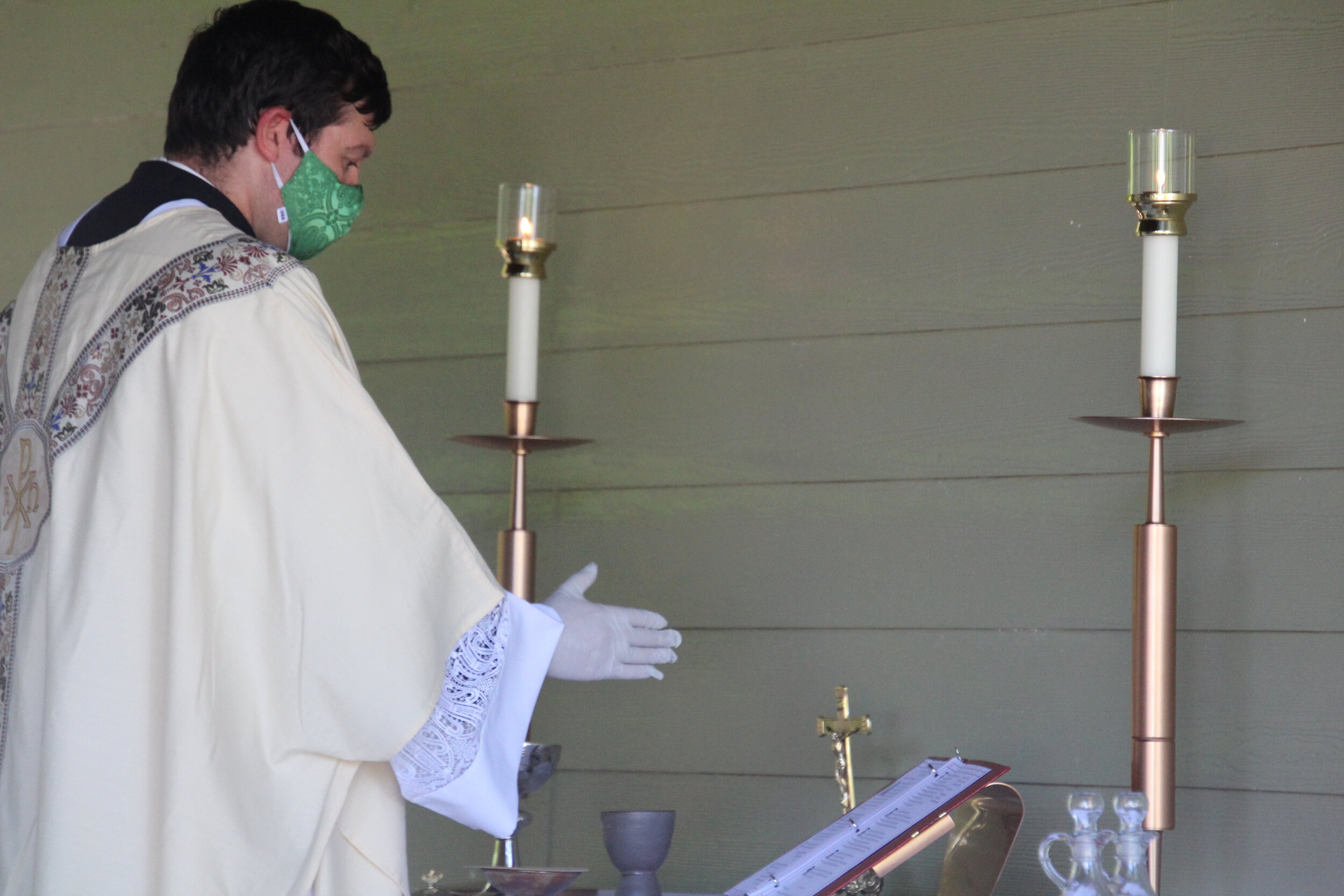
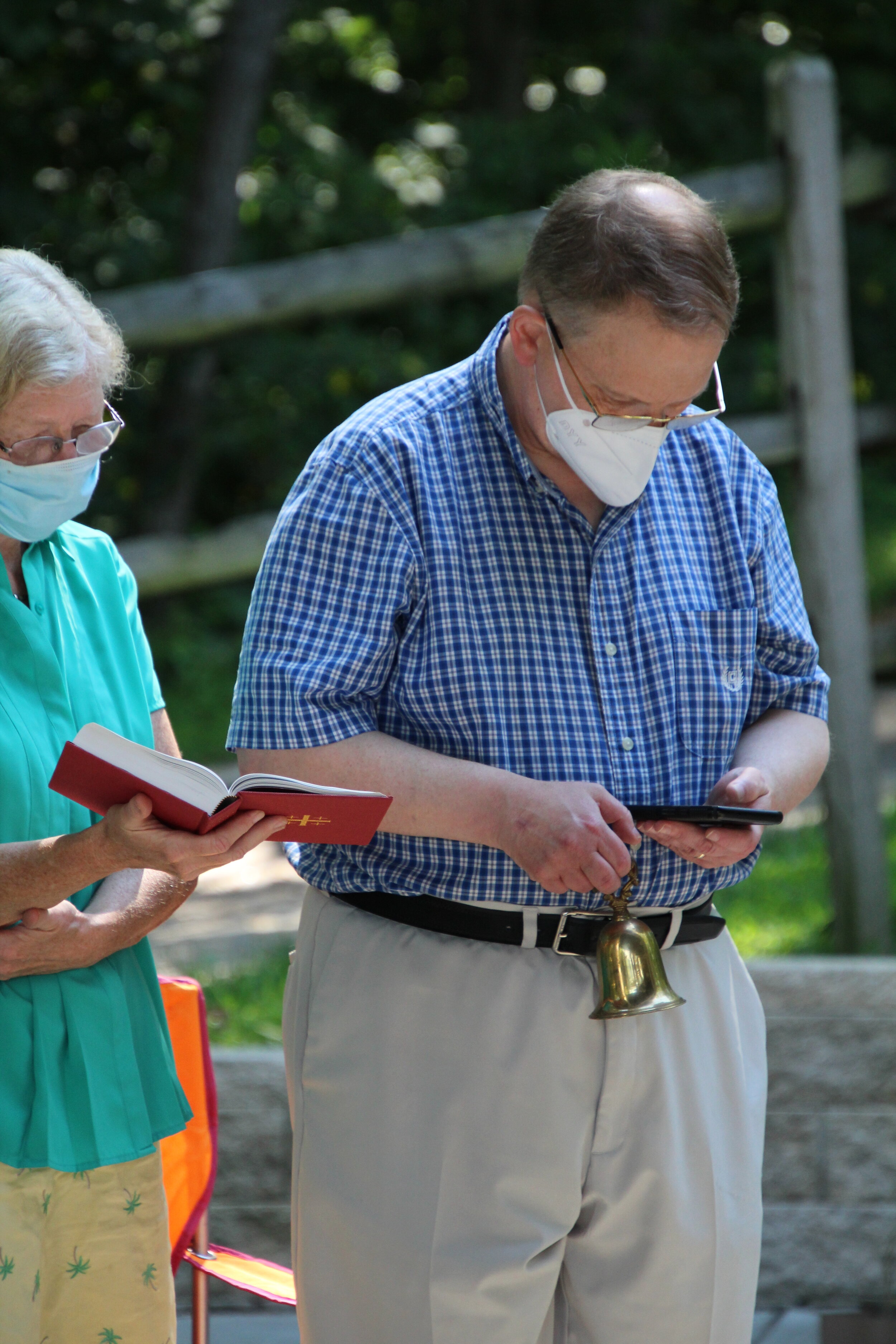
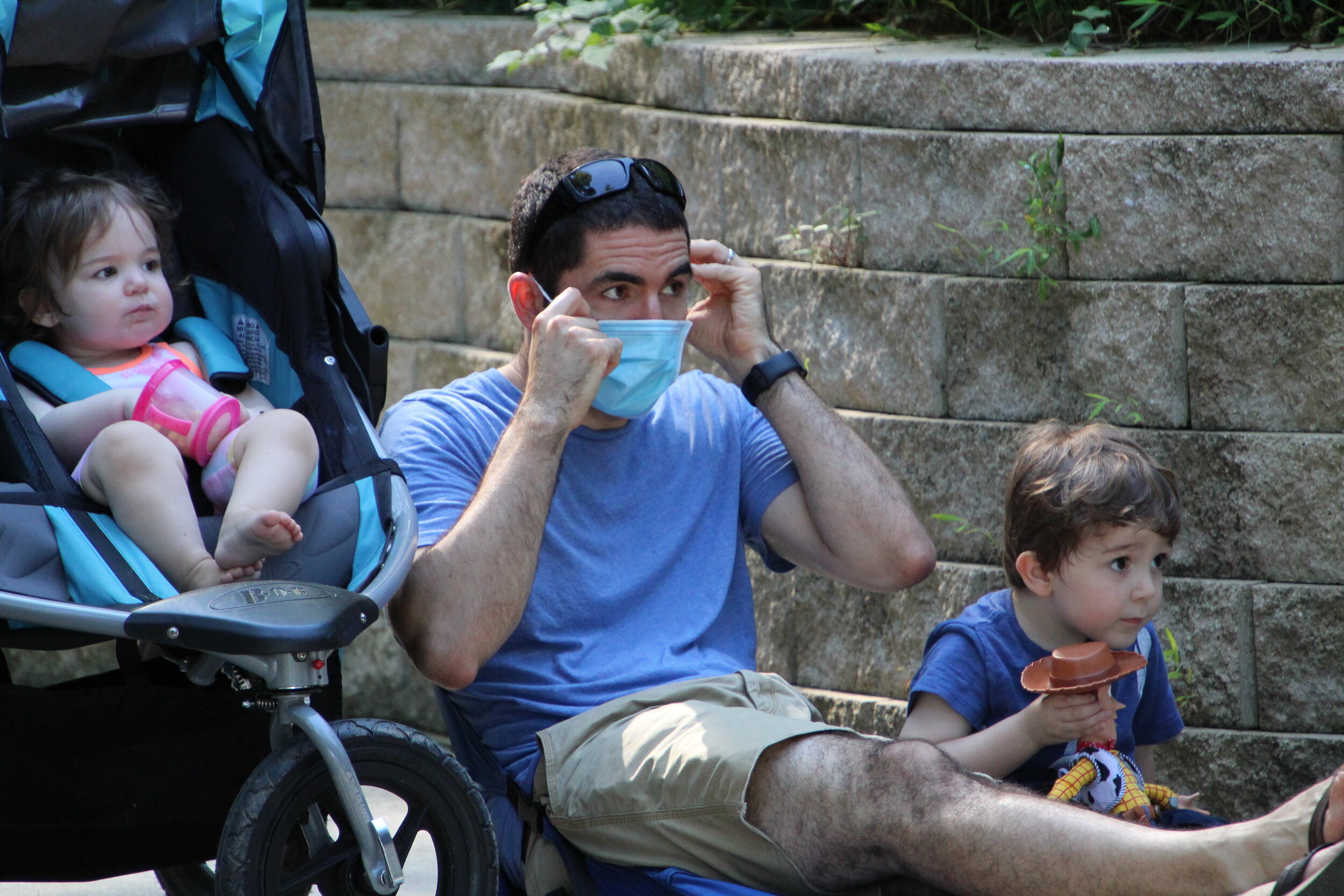
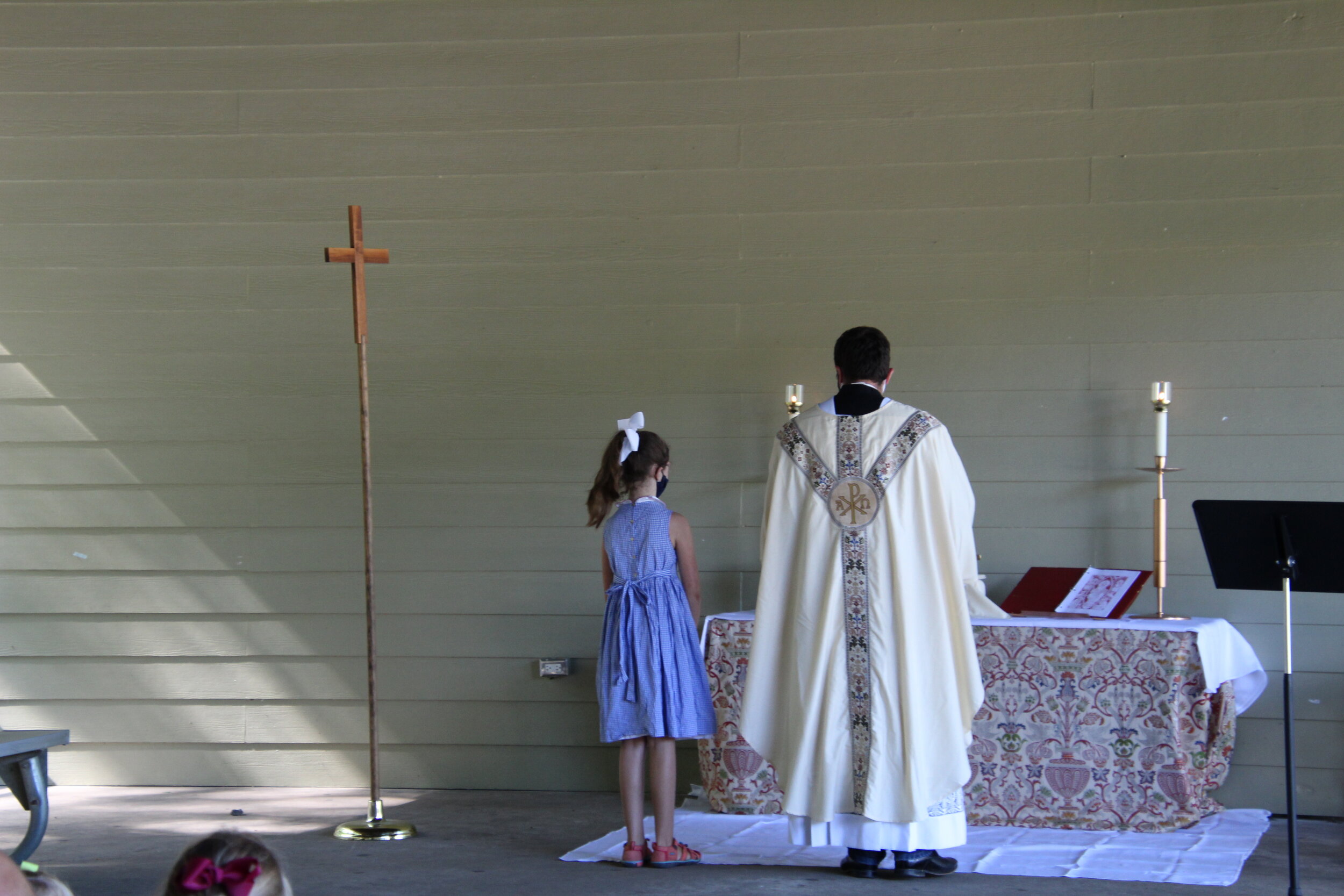

Archaeological Evidence for the Bible - New Creation Church Invites You
Ted is a dynamic speaker that combines the experience of an archaeologist, the mind of a Christian apologist and the heart of a pastor. Please join us! Be sure to mark your calendars. This is a FREE EVENT!
by Chad Gross
You are invited to: Archaeological Evidence for the Bible with Ted Wright
Saturday, Nov. 7, 2020
10 am to 3 pm
New Creation Church
Hagerstown, MD
Ted Wright currently serves as the founder and Executive Director of EpicArchaeology.org. Epic Archaeology is dedicated to cutting edge research as well as bringing the wonder of archeology, historical investigation and discovery to the everyday person.
Ted has also appeared on numerous television and radio programs including the History Channel’s TV miniseries – “Mankind: The Story of All of Us” (2012), “Mankind Decoded” (2013), and CNN’s miniseries on the historical Jesus, titled, “Finding Jesus: Faith. Fact. Forgery” (2015). He has also appeared on ABR’s TV program “Digging for Truth.” He will be joining us to discuss the archaeological evidence for the Old Testament and the New Testament.
Ted is a dynamic speaker that combines the experience of an archaeologist, the mind of a Christian apologist and the heart of a pastor. Please join us! Be sure to mark your calendars. This is a FREE EVENT!
The sign-up is here.
Chad A. Gross is Pastoral Associate & Outreach Coordinator at New Creation Church in Hagerstown, MD.
Race Relations in a Majority Black Town - Resurrection Emporia
More than Charlottesville, more than Richmond, perhaps more than any other place in Virginia, Emporia would appear on the surface to be a place ripe for violent protests.
by Harry K. Zeiders
What is it like to minister in a majority black town during the nation’s current plague of racial strife? This is a town where the majority of residents live on welfare; a town some websites call the poorest town in Virginia; a town with high rates of social dysfunction, school truancy, and work absenteeism. This is former slave plantation and Jim Crow country. This is a town where many local businesses still close on Wednesdays because that was the day the slave train pulled into town and the town closed shop so that everyone could go inspect the new wares on display. More than Charlottesville, more than Richmond, perhaps more than any other place in Virginia, Emporia would appear on the surface to be a place ripe for violent protests.
But this is also a town where black and white pastors have been holding monthly prayer meetings with the white chief of police and the white county sheriff for the past five years. This is also a town where the white ministers’ association finally integrated and voted in a black pastor as its vice president three years ago. This is a town where black and white churches have been co-leading community revivals for the past three years. This is a town where black and white pastors started founding a chaplaincy for the local police department and sheriff’s office a year ago. Emporia is a town that God has been preparing for 2020.
As a result, when black and white pastors held a drive-in service on race relations earlier this month, it was peaceful and joyful and centered on the Word and work of the Triune God. The best part for me was getting to hear a fellow pastor share some reflections on what it was like to grow up as a young black man in Richmond. The evening was so good, that at the end when one of the leaders announced we would hold another drive-in on race next month, everyone honked their horns.
The Rev. Harry K. Zeiders is the Rector at Resurrection Church in Emporia, VA.


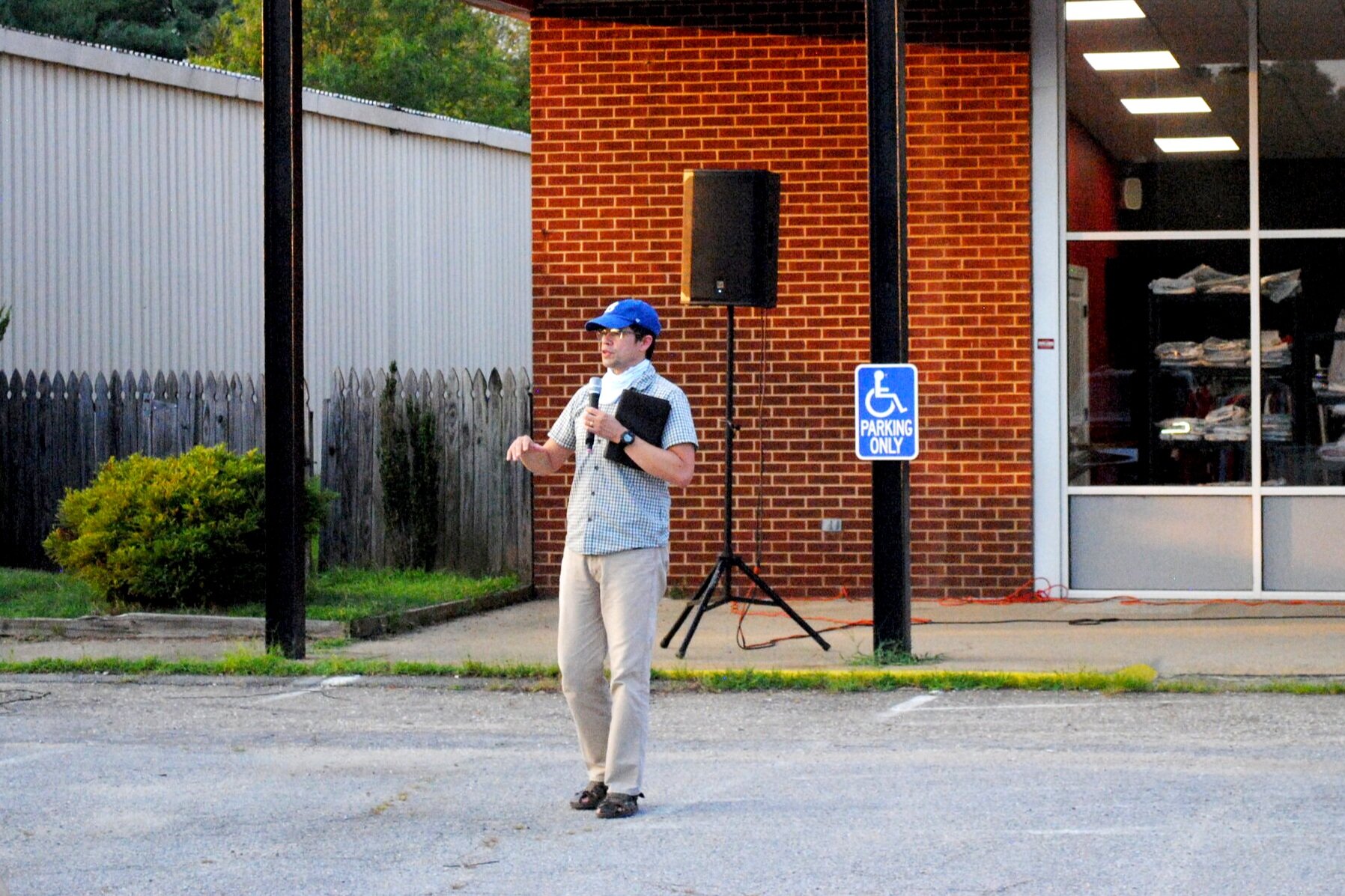

Raising up the Next Generation
Ask any clergy person and they will tell you about the people in their lives who believed in them, opened doors for them, and walked alongside of them as they mastered the difficult skills of leadership. Experience really is the best teacher.
Since the inception of our diocese, the Diocese of the Mid-Atlantic has had a strong commitment to raising up young leaders to serve the Church. In my workshop at Synod last year, I stated my belief that young leaders are “made, not born.” Regardless of our God-given talents, we learn to lead by leading. That happens best when senior leaders place their confidence and trust in young leaders and give them opportunities to discover and develop their gifts for ministry. Ask any clergy person and they will tell you about the people in their lives who believed in them, opened doors for them, and walked alongside of them as they mastered the difficult skills of leadership. Experience really is the best teacher.
Many leading authors and church planters have written about Jesus’ Paradigm for Leadership, including Dr. Bob Logan, John Maxwell, and Dave Ferguson. Simply stated, it looks like this:
If Jesus had not invested in The Twelve, The 72, and The 120, we would not be here today having this conversation. The church was born because of the first-hand opportunities Jesus gave the first disciples to learn from him how to minister and become leaders. St. Paul was equally concerned about this and provided a great example in the many young leaders he trained. He was emphatic about this with his best known protégé, Timothy, when he said to him, “Pass on what you heard from me…to reliable leaders who are competent to teach others.” (2 Timothy 2:2, MSG) In a similar passage, he exhorts Titus with these words, “This is why I left you in Crete, so that you might put what remained into order, and appoint elders in every town as I directed you.” (Titus 1:5, ESV). When we take young, emerging leaders under our wing as apprentices, we’re not only providing more laborers for the harvest today, we also ensuring that there will be a harvest tomorrow.
The Anglican Church in North America considers this so important that The Next Generation Leadership Initiative has been established as one of the five primary ministries of the province. In the words of Canon Esau McCaulley, leader of this initiative and our guest speaker at Synod last year, their vision “is to raise up the next generation of leaders for our churches, communities, and cultures.” Concerned about the severe shortage of church leaders that currently exists and promises to worsen in the next decade as a significant number of our existing clergy retire, the Next Generation Leadership Initiative is committed to “discover, develop, and deploy” leaders to serve four specific populations: Communities of Color, Children/Families, Youth, and College Students.
In our own diocese, we have focused on providing summer internships for high school, college, and seminary students. A number of our congregations are now offering these 3-month programs, which provide an environment where interns can gain valuable ministry experience while exploring a possible calling to church ministry. This summer we have eight interns serving with us in a variety of capacities. In addition to the work in their own congregations, the group will also spend time together, getting to know one another and building relationships with each other to see their role in ministry through a wider lens. Under the tutelage of Wes Buckley, Youth Minister at Truro who will facilitate these gatherings, the interns will have time with Bp. John and myself, do some shared reading together, and reflect together on their experiences and futures.
We’re excited to see them responding to God’s call and pray that this summer will be a rich and rewarding one for all of them. Many thanks to the Great Commission Committee for providing matching grants, and especially to the congregations sponsoring interns this year: Christ the King, Ascension, Truro, and Christ Church (Vienna). Without your vision and financial support, these opportunities to “raise up the next generation” would not be possible.
Praying in the Harvest
“One of our goals has been to help provide intercessory prayer cover for our church planters who are already “out in the field,” as well as praying in new planters for the Diocese. So, as churches are planted, we develop an ongoing prayer relationship with the planters and the churches, praying for each one on a regular basis.”
Praying in the Harvest
By The Rev. Tim Howe, Executive Assistant to the Canon for Church Planting
In Luke 10:2, Jesus tells His disciples: “The harvest is plentiful, but the laborers are few. Therefore, pray earnestly to the Lord of the harvest to send out laborers into His harvest.”
This verse has been one of the key components of the work of the Great Commission Committee from its inception in the early days of the Diocese of the MId-Atlantic. The Committee is charged with supporting our congregations in the work of evangelism, discipleship, church planting, and congregational health and well-being. It is a broad mandate that requires the input and work of a large number of volunteers from all across the diocese.
At the heart of the Committee’s work lies this word from Jesus, to pray in the laborers to gather the harvest.
Seven years ago, Bishop Guernsey asked me to develop an intercessory prayer ministry to cover the work of the Great Commission Committee, including this mandate from Jesus to pray in new laborers to gather the harvest. We had two mini-conferences on intercessory prayer very early on in this process from which we got a committed core of intercessors to get the ministry launched and running. Many of them are still praying with us to this day.
One of our goals has been to help provide intercessory prayer cover for our church planters who are already “out in the field,” as well as praying in new planters for the Diocese. So, as churches are planted, we develop an ongoing prayer relationship with the planters and the churches, praying for each one on a regular basis.
We currently have about 140 folks receiving the bi-weekly email prayer requests. These folks are divided up into four teams so that we can get all of our church planters prayed for at least once a month and we can pray for new laborers to come and plant in the areas of the Diocese where we lack a church.
Our goal is to pray in laborers who have a heart for the lost and who will succeed as church planters, establishing viable congregations for the long term.
In one sense, the ministry of intercessory prayer is very much a “behind the scenes” type of ministry. You don’t always see the folks who are praying, but you can often tell when they are. God’s hand becomes evident when people are lifting the effort to the throne of grace on a regular basis.
We have seen a number of answers to our prayers.
We have prayed for Columbia, Maryland since we began. Now, Trinity Anglican Fellowship, under the leadership of Galen Carey, is meeting regularly in Columbia.
We prayed for the Lord to launch a work in the panhandle of West Virginia for quite some time. Now, in answer to those prayers, the Rev. Darryl Fitzwater and his crew have planted the Church of the Ascension in Kearneysville, WV. God heard our prayers, prepared Darryl and his wife Becki, and the church is growing. We continue to pray for Church of the Ascension now as one of the Diocese’s Mission Churches.
At Diocesan Synod, 2019, Incarnation Anglican Church, Arlington, was admitted as a new, full congregation of the Diocese. During the proceedings at Synod, the Rev. Liz Gray, rector of the church, asked everyone to stand up who had supported their effort through prayer. Scores of people stood up all across the room. Many of them were our intercessors who have been praying regularly for Liz and the new church.
These are just a small sample of God at work through our intercessions.
One of the things we have seen is that the work of intercession for these efforts is a vital, if unseen, component of the success of our church planters. By interceding, we help clear the way for God to work in and through our church planters to reach new communities with the vital message of Christ’s gospel.
And, by praying in obedience to Jesus’ words in Luke 10:2, we have seen Him raise up new laborers and the resources they need to become successful church planters.
If you might be interested in joining us in this effort, please contact me at the email address I use to administer this prayer program: domaprays@gmail.com. I would love to hear from you and have you join us as we pray down God’s blessings on His church and pray in the laborers needed to gather in the harvest all over the Diocese.
What Do You See?
The Lord is at work in our midst, as His people. Jesus is still standing among the lampstands, holding the stars in His right hand, speaking that two-edged sword. If you think about this western DOMA outpost, pray for us. Thank the Lord for the “now,” and ask Him to keep moving us into His “not yet.” Ask Him to open our eyes to see as He does. We will pray the same for you.
Photos taken at Ascension before COVID-19
What Do You See?
Now that’s a striking question that God asked the prophet Jeremiah (1.11). In his case, it was an almond branch, and again later, it was a spilled pot. In both cases, those simple things plainly visible to Jeremiah’s eyes were indicators of what the Lord was doing and preparing. It does us well to set our own hearts to the Lord, with His question in our own ears. We look, and we listen.
Palm Sunday marked the two-year anniversary since Church of the Ascension began public worship here in the panhandle of West Virginia. In the past two years, there have been many things we have “seen,” but to name just a few: marriages restored and new ones created, missionaries sent around the globe, faith renewed and lives reconciled, week-long evangelistic campaigns held at the county fair, and a new generation of disciple-making disciples formed and sent by the Lord.
We’ve become something of a house for other ministries: international missionary care, care for people in need, regional intercessors, and state ministry networks. Our congregation is composed of 25 or so families and has 70 people involved in monthly ministries. Those are not the “giant” numbers the Lord quickly gives some churches, yet He asks, “What do you see?”
† I “see” that He has made a church unlike anything else in our four-state region. There was never a Charismatic renewal here. Indeed, I still am asked what an “Angeli-can” is, and since I’m often dressed in clerics, there is a bit of shock in Pentecostals who see a Priest laying hands for prayer, blessing, or deliverance.
† I “see” both the “now” and the “not yet.” I’ve been working on a 2050 vision that creates a mid-Appalachian network of churches, missions, and ministers who embody the whole of the Tradition. That is the “not yet,” but right now, there are a few churches and ministers across West Virginia using the 2019 BCP in their independent churches, praying the Morning and Evening office, and more.
† Right now we are seeing that Ascension is a caring for those in physical need through Renewed Life Ministry, and for missionaries across the globe through Forget-Me-Not-Ministries. We see now marriages put back together. We are about to have our fourth infant born in the church. We see growth in new families attending, families growing, and people receiving things they thought impossible.
† Right now, one person has been recommended for Holy Orders, one more is beginning local discernment, and another is preparing for seminary.
† Right now, we have seen a multi-media presence develop online so that we have 125 subscribers on YouTube. Thousands of people weekly view our page, stream our services, and join us for Morning and Evening Prayer on Facebook. We even got a call-out twice from Anglican Ink!
† Right now, a family found our website and online ministry clips from Tennessee. They had lunch with me a few months ago because they are selling their home and moving this way, but they wanted to find a good church before they moved, and they picked our new congregation! They’re charismatic Presbyterians. They closed on their new home here two weeks ago.
It’s difficult to stop sharing the “now” for one reason – there are so many good testimonies! It is far too easy to only look at our inability to gather as a new congregation for our regular events. While it is on a much smaller scale, we did just finish renovating our sanctuary space to seat 100 people – new floor, monitors, chairs, Holy Table – and we’ve only been able to meet in the space once. However, in this difficult time, I’ve watched something that every Pastor hopes to see among the people: love for one another. The care and concern members of this congregation are giving and receiving one to another during the pandemic is a witness to me of their shared hope in Christ.
We are only celebrating two years. Yet we are truly celebrating two years. Many of your churches and ministries have similar testimonies and praise reports. The Lord is at work in our midst, as His people. Jesus is still standing among the lampstands, holding the stars in His right hand, speaking that two-edged sword. If you think about this western DOMA outpost, pray for us. Thank the Lord for the “now,” and ask Him to keep moving us into His “not yet.” Ask Him to open our eyes to see as He does. We will pray the same for you.
Fond Farewell from Tom Herrick
With a great deal of mixed feelings, I’d like to announce that I’ll be retiring at the end of this year as Canon for Church Planting. It’s been a great privilege for me to serve Bp John and all of you in this role.
With a great deal of mixed feelings, I’d like to announce that I’ll be retiring at the end of this year as Canon for Church Planting. It’s been a great privilege for me to serve Bp John and all of you in this role. When I began five and a half years ago, the Great Commission Committee and I sensed God’s leading to cast the vision of becoming a church planting diocese. It’s a bold vision that needs all of us working together to fulfill it. We began by creating a church planting infrastructure with 7 essential systems: assessment, coaching, training, leadership pipeline, planter care, oversight, and funding.
Having these systems in place would greatly expand our capacity and enable us to move from planting a church every so often to planting multiple churches every year. Now that the Vision for 50 Fund has been established and is helping to fund our newest church plants, all seven system are up and running. We still have a lot of work to do, but my sense from the Lord was that my particular assignment had been completed.
As this ministry has grown, it became evident that the current part-time position was not sufficient for us to plant 50 churches by the end of the decade. Bp. John and the Great Commission Committee decided it was time to make this a full-time job. Working together with the Finance Committee, the budget was revised in such a way that would not impact the diocesan budget. A search committee has now been convened under the leadership of the Rev. Rick Wright and the position will be posted later this month. I wanted to share this news with you myself and ask your prayers for God to send us the person he has selected. Please join us in spreading the word and recommending this position to those you know who may be interested.
I also ask your prayers for me as I approach this milestone in my life and begin the process of leaving a job I have loved and about which I have been passionate for a very long time. I plan to continue my teaching at Gordon-Conwell, as well as my coaching and consulting after stepping down as your canon. I’m not sure how easy it will be for me to make this transition, but, as Paul said to the Philippians, “I am sure of this, that he who began a good work in you will bring it to completion at the day of Jesus Christ.”
The Rev. Dr. Tom Herrick is the Canon for Church Planting
Same Prayers, Different Day
In this pandemic, I believe this Book of Common Prayer forms the rule of prayer that our hearts need to order what feels unruly and ever changing. It teaches us how to come to God in grief and lamentation, in repentance, and in authentic joy for His great acts of salvation.
A recent blog post from the Franconia/Springfield Church Plant, helps to answer a common question:
“Are we being faithful and authentic by praying written prayers?”
In addition to answering this question, The Rev. Morgan Reed reminds us that during a pandemic, believers are connected in a unique way when daily praying from the same Book of Common Prayer:
In this pandemic, I believe this Book of Common Prayer forms the rule of prayer that our hearts need to order what feels unruly and ever changing. It teaches us how to come to God in grief and lamentation, in repentance, and in authentic joy for His great acts of salvation. This season is forming us into one of our core values, which is to live the kind of life outlined in the Book of Common Prayer. Growing as a disciple of Jesus does not stop during a pandemic and although we cannot be in physical proximity together, we can share a prayer life.
Read more here.
Starting a New Church During a Pandemic
What ultimately kept us from canceling was recognizing the need that people have for human interaction — even if virtual is the best we can do.
The Welcome Brunch was our very first meeting together as The Franconia-Springfield Mission, so when the pandemic became bad enough that all public gatherings were required to have less than ten people at 6 feet apart, we were not thrilled with the prospect of canceling it. What ultimately kept us from canceling was recognizing the need that people have for human interaction — even if virtual is the best we can do. One of our core values at TFS Mission is hospitality and in this world of virtual conversation we wanted to create a virtual table for everyone to gather around. One difficulty with Zoom is that it does not facilitate good large group communication patterns. What started as a 'get-to-know-one-another' event became a 'get-to-know-the-plan-for-this-new-church' event, which changed a gathering that would have been primarily a conversation into primarily a presentation. Going through a presentation about this new church was a helpful start, but using Zoom that morning forced me to think about how to virtually facilitate the kinds of conversation we want to have in larger groups.
Different types of services need different types of virtual media, or at least different settings within one medium (i.e., livestream, conference call, etc). If I want to turn a presentation back into conversation then I need to think about how to manufacture it. We are going to have a Bible Study together once per month where we discuss the occasions where Jesus describes what it means to be his disciples. There will be food, discussion, and prayer; and yet, it will all be virtual. We will take this larger group and break it down into small discussion groups by using Zoom breakout rooms and see how that works.
We have begun doing Compline together on Wednesday nights through Zoom and the presentation format works well in this instance (I also pray the responses, but invite others to join me). This need arose from conversations about how unstructured a day feels for people. The service is simple, quiet, contemplative, and where there would normally be a reflection I lead us through an examen. Several have told me they appreciate the discipline of building in silence and reflection into their day. (See all events on the Facebook page or website.)
The database we use is Planning Center Online and one of the many reasons I have appreciated this database is its ability to create forms. Security is a concern when we do things virtually, but one solution I am trying is asking people to RSVP for a virtual event. The Database form will filter out any bots and if I see a name I do not recognize, this provides me an opportunity to follow up with that person. The automatic response to someone's RSVP has the Zoom information.
The Rev. Morgan Reed has been called to plant a church that will have real gospel impact in Franconia, Springfield, and Kingstowne, Virginia.
Creative Ministry in an Unexpected Time
We believe this is a unique time in which the Lord may use us to enter into the soft places of students' hearts with the hope of the gospel. Their security is compromised. Their plans, for the most part, have gone by the wayside. Many of them have a growing amount of material need. Many of them are afraid.
Creative Ministry in an Unexpected Time
By David Comeau & Tee Feyrer
When university presidents at both VCU (Virginia Commonwealth University) and U of R (University of Richmond) announced the transition to remote learning we were shocked. This virus was moving so quickly. Something that not long ago had barely been on our radars was now drastically affecting our lives and the lives of people we love. Each of us felt like we were beginning to see momentum in these new ministries. Our living rooms were beginning to fill up. Relationships were being built. The gospel was being shared. Some students were learning of the love of Jesus for the first time, others were joyfully discovering the richness of the scriptures they had read in church or with their families since childhood. Students were trusting us with their pain, opening themselves up to prayer. We were looking forward to returning from spring break fresh and ready to finish our semester strong. Now what?
As we write this - one week after schools announced closure - we recognize the tragedy and the gravity of this situation (which of course goes far beyond college ministry). Yet we are also very hopeful. We know this is not the first time the church has faced a challenge like this, and we remind ourselves as the psalmist does (Psalm 42) that we serve a Lord who “commands his steadfast love by day” and whose “song is with us [and those we love] by night.” We believe we serve a good and loving God who longs for his children - in our case, these particular college students - to know him and trust him as Father. We also believe that, though we will not be together physically, our ministries will continue to reach students and even grow in this season.
This week, with the wise counsel of our church staff, we are making a hard pivot and looking ahead to a spring and summer of what we will in this article call “creative ministry in an unexpected time.” Our discipleship meetings will continue virtually by phone or video-call, weekly large groups with teaching, prayer, and fellowship will be held at our normal times on Zoom, and we will see the very few who have remained in town in safe socially distant ways (i.e going on a run or walk six feet apart). We are hearing exciting reports from other ministries moving to this platform who are reaching more and more students and believe this is a time ripe for the gospel to be shared. Recognizing however, the massive shift in which most of our lives are going online, mediated by a screen, we are sending our students handwritten letters through the mail, a guide for silent retreat, personally bound books with devotional resources steeped in our rich tradition yet contextualized for today, good stories (think Wendell Berry, CS Lewis, JRR Tolkien), and discipleship resources (think A Common Rule, Liturgy of the Ordinary, Drama of Scripture). Tee is even curating Spotify playlists for his students to accompany them while they work.
We believe this is a unique time in which the Lord may use us to enter into the soft places of students' hearts with the hope of the gospel. Their security is compromised. Their plans, for the most part, have gone by the wayside. Many of them have a growing amount of material need. Many of them are afraid.
Would you join us in prayer for our ministries and our students?
The Rev. David Comeau & Tee Feyrer are college ministers with Redeemer Anglican Church in Richmond, VA. David is a college minister at VCU and Tee is a college minister at U of R.
Welcome Brunch for the Franconia-Springfield Mission
We are having the first ever welcome brunch for the Franconia-Springfield Mission! Come enjoy good food, community, and discover more about the vision for this new church. The brunch is potluck style, so bring a brunch favorite, but if you cannot bring anything please come anyway!
We are having the first ever welcome brunch for the Franconia-Springfield Mission! Come enjoy good food, community, and discover more about the vision for this new church. The brunch is potluck style, so bring a brunch favorite, but if you cannot bring anything please come anyway!
RSVP here for the address.
Contact Morgan+ if you have any questions at morgan.d.reed@gmail.com or text at (707) 318-4934.
Sweet 16
"So, now - how’s it going?" I hear you ask.
Honestly? It’s lovely.
SWEET 16? OR IS THAT 21?
By Liz Gray
Actually, on Feb 9, 2020 Incarnation turned 17 months from public launch… but that doesn’t have quite the same ring!
But, oh what a sweet 17 months it has been! Incarnation soft launched from our wise and wonderful mother church, Restoration Anglican in May 2018, initially meeting in my sitting room - so I guess that could make us 21 months old now? We moved into Greenbrier Baptist on Sept 9, 2018 where we enjoyed 14 months of public worship as we began to learn how to be a new community of Jesus followers in a South Arlington context, sharing the space with our wonderful Baptist friends.
And then, as 2019 drew to a close we had the opportunity to move into a space owned by the Arlington United Methodist Church which we could call home - a chapel, two rooms for our kids, two offices (even our own little half-bath!). What more could we need or want? The space needed a bit of a spring clean so our Saturdays in November were full of paint and scrubbing brushes…. getting us ready for Advent.
"So, now - how’s it going?" I hear you ask.
Honestly? It’s lovely.
We are just two blocks from Columbia Pike - where they say 100 languages are spoken. Part of our dream is to be a place of welcome for people with any heart language - which is why every Sunday we include singing, or praying, or Bible reading in a mix of languages in our worship time.
We share the complex with three other churches and two pre-schools, a clothing bank and a jobs program, though the chapel and offices are our own. On Sundays we hear singing in Amharic, Spanish and English echoing around the halls. When we are working in our offices during the week we meet people who are in the building for so many different reasons, who often want to pause and chat. We’d love to have more of those conversations in the days ahead.
Our Incarnation neighbors are - literally - our neighbors. We love welcoming the people whose homes are next to our homes into our extended community. The people who see how we live every day. We love it when they come and visit our services or come to a ‘common table’ event. This Shrove Tuesday we are encouraging everyone in our community to invite their neighbours to pancake suppers in their homes wherever they live. And so the numbers in our community are gradually increasing as we welcome people in; most Sundays around 60-70 people worship with us, and we are delighted to welcome both those who are used to our liturgy and those who have never heard the word ‘liturgy’. People coming and belonging.
Worship. Wonder. Welcome. These are the words that frame our choices and decisions. We are having such fun learning what wide and deep and joyous words they are.
And, so, as I look back over these last 17/21 months I am consistently reminded of how grateful we are for God’s hand on our community, and to so many people who have helped to shape and form us: ‘mom’ Restoration Anglican Church and David Hanke, the Great Commission Committee with Tom Herrick and our favorite Bishop, John Guernsey, and of course the team that have done so much of the heavy lifting and without whom Incarnation would not be what it is: Beth DeRiggi, Josie Ortega, Morgan Reed, Amy Rowe. Not to mention, in addition, the hundreds of people who have prayed, given, loved, encouraged and delighted in all God is doing. And, as a Mid-Atlantic Messenger reader, thank YOU for the part you have played in helping this little church plant to find its feet and begin to flourish. We are very, very grateful.
The Rev. Liz Gray is the Rector of Incarnation Anglican Church
The Franconia/Springfield Mission
The idea of becoming a common people through common prayer comes from my reading of Acts 2:42-47 where we discover a prayerful, sacramental, Spirit-filled community following after Jesus.
Nearly 5 years ago on a sunny afternoon my wife, Ashley, and I were driving through North Springfield in search of a special house; not one to live in, but the one in which her grandparents had lived and in which her mom had grown up. We both grew up in California and had only heard about Springfield through stories, but now that we had moved to Virginia, we had to take up this opportunity to see this familial landmark. As we passed by the house, Ashley looked at me and said, “Wouldn’t it be crazy if we raised a family where my mom grew up?” That question, although it was said half-jokingly, was actually prophetic. Little did we know that years later God would call us to begin a new work in this region with a fresh vision for a church!
The Vision
A few months after I was ordained to the priesthood in 2017, Ashley and I were led to be a part of the original team that planted Incarnation Anglican Church in South Arlington. These three years at Incarnation taught me the ins and outs of beginning a new church and served us well in preparation for beginning a new work. We had been praying about God’s call to start a new church (where it might be and what it might look like) and in Sept 2019 I began a church planting residency program with Anglican Associates Inc. in Little Rock, AR. This program has helped me narrow down the place God was calling me to plant as well as the vision of the church: A common people in common prayer for uncommon transformation.
The idea of becoming a common people through common prayer comes from my reading of Acts 2:42-47 where we discover a prayerful, sacramental, Spirit-filled community following after Jesus. The vision also comes from my history of the Church, specifically the Rule of St. Benedict (RB). RB seeks to create “a school for the Lord’s service” (RB, prologue) that brings an individual to the place of preferring nothing to the love of Christ (RB, IV). The same pursuit of preferring nothing to the love of Christ should be at the center of the interior life of every follower of Jesus; and such an interior type of monasticism can be found in the Book of Common Prayer. To say this another way, Rev. Dr. Greg Peters says, “...Liturgy leads to theology, and theology, when absorbed leads to godliness.” (The Monkhood of All Believers, 104). The liturgy of the BCP is a unifying act of worship that God uses for our transformation, just as the catechism says, “Anglicans worship with a structured liturgy because it embodies biblical patterns of worship, fosters reverence and love for God, deepens faith in Jesus Christ, and is in continuity with the practices of Israel and the Early Church.” (To Be a Christian: An Anglican Catechism, #245). As people join the Franconia-Springfield Mission and live out the life outlined in the BCP, we hope to become a common people in common prayer for uncommon transformation.
Franconia-Springfield
Franconia, Landmark, Springfield, and Kingstowne have well over 100,000 people according to 2010 census data (surely this has increased in 10 years!). Because of the lower cost of housing than other parts of the beltway, the region attracts a good number of commuters (single and married) between the ages of 24-55 who often feel untethered from a sense of place and isolated from a sense of community. Combine this with the large military population of Fort Belvoir, and the fact that there is no ethnic majority, and one begins to see the picture of fragmented disparate communities that make of the region of Franconia, Springfield, Landmark, and Kingstowne. The disparate nature of the region and the need for Gospel transformation has led us to our mission, which is to become an authentic and invitational community growing in the love of Christ through rhythms of hospitality, prayer, relationships, and service. To become this kind of church, we will go through four phases before we launch.
Phases of Growth
As you think about this work, please pray for us. There are several phases that we will move through as we seek Gospel growth in this area:
Over the next year I (Morgan+) will be fundraising, seeking out ministry partnerships, and holding monthly interest brunches to share what God has put on our heart. We would like to raise enough financial and prayer support that by 2021 my wife, son and I can move down to the target region.
Once we move, we will hold biweekly small groups during the week where we will have a common meal, a group discussion, talk through the needs of the region, pray for people by name, and finish our time with family evening prayer.
After several months of meeting for small group we will hold an Alpha course. Through our ministry partnerships with local churches, we hope to hold an ecumenical alpha course so that we can not only learn more about communicating with the unchurched/de-churched, but also form gospel partnerships with other churches in the region.
Finally, we will begin renting space for Sunday worship (though this will not yet be our “launch service”). At this time, launch team members will fully commit to being a part of the church and we will do the liturgy in the Book of Common Prayer with the historical and global church as our guide to the ceremony in the liturgy (e.g., incense, vestments, processions, feast and fast days).
How to help with the mission
There are several ways that you can partner with what God is doing at the Franconia-Springfield Mission:
Visit our website (http://tfsmission.org), like us on Facebook, and join our mailing list.
Join our financial support team with a one-time or recurring gift. Instructions on how to give can be found here.
Join in for one of our interest brunches over the next year and bring others along to hear about this new church (Our first one will be March 28!)
Offer a very practical skill toward this work (sewing, photography, woodwork, pottery, etc.).
Please pray for us. The Gospel goes forth as God’s people pray (Col 4:2-6).
Please contact me anytime with more questions at morgan.d.reed@gmail.com.
The Rev. Morgan Reed has been called to plant a church that will have real gospel impact in Franconia, Springfield, and Kingstowne, Virginia.
Giants in the Land
As much as we would like to be on Easy Street, we can’t escape the fact that God’s work will always be opposed, often fiercely. The battles we face may not be with physical giants, but they are very real and will call forth from us every ounce of strength and courage that we possess.
March is one of my favorite times of the year. Spring begins to awaken the earth out of its slumber, calling forth new growth. Lent is in full swing, calling the Church to long-established disciplines that nurture new growth in our souls. Then, of course, there’s “March Madness,” the NCAA tournament to crown as champions the best men’s collegiate basketball team in the country. You don’t have to be a sports fan to appreciate the zaniness of this annual American pastime. Every year, I find myself surprised at the size of these young men, most of whom are still teenagers. The clear winner of the “Giants in the Land” award this year is Tacko Fall, from Senegal, who plays for the University of Central Florida. At 7’6” he towers over most other players in the tournament by at least a foot. You could say he is a modern-day giant. Every coach’s strategy has to focus on how to distract, get around, or otherwise neutralize his impact on the court. He’s just too big to ignore.
Watching him play reminded me of another teenager who had to square off with a giant – only there was a lot more at stake than a trophy. David’s epic battle has inspired generations of Jewish and Christian believers, not just because of his courage, but also for his amazing faith in God. He has reminded me many times that there will always be giants in the land. Unlike the Israelites in the desert who almost stoned Moses out of their fear for the “sons of Anak” (Numbers 13 & 14), David ran into the battle confident that God would protect him, and he would prevail. In fact, this showdown was just the beginning for David and prepared him for many other battles to come. I’m convinced that God arranges these battles for us, ordering them, if you will, to build our capacity and increase our endurance. Jeremiah challenged the Israelites of his day with the question, ““If you have raced with men on foot, and they have wearied you, how will you compete with horses?” (Jer. 12:5). Indeed, God calls us to square off with giants, not avoid them. As much as we would like to be on Easy Street, we can’t escape the fact that God’s work will always be opposed, often fiercely. The battles we face may not be with physical giants, but they are very real and will call forth from us every ounce of strength and courage that we possess.
What are the giants in your land today? What is that one thing posing such a huge challenge that it’s just too big to ignore? Giants come in many varieties, shapes and sizes. The common thread is their ability to paralyze us in fear and stop us in our tracks. In those moments, God calls us to remember that the battle belongs to him and the victory is secure. Finding that peace and resting in that trust is what the battle is all about for us. God will never fail us or forsake us (Heb. 13:5,6). Nor will he allow us to be tempted beyond our ability to endure (1 Co. 10:13). James reminds us that the roots of our temptations lie in our own desires (James 1:13-14), those unhealed, unrestored places in our souls. I would add that our journey with God is both individual and communal in nature. While we each have to face our giants, unlike David, we don’t have to face them alone. Many brothers and sisters in Christ have gone the way before us, including and especially, our brother Jesus, who “in every respect has been tempted as we are, yet without sin” (Heb. 4:15).
During this Lenten season, let God call to mind the giant he stands ready to defeat for you. We may have no idea how to overcome and move beyond this giant, but God already has a plan and is getting us in shape to carry it out. Like Caleb and Joshua, who saw the same giants as the other spies, let’s keep our eyes focused on the Promised Land and all that awaits us on the other side, for God is already giving it into our hand.
The Rev. Dr. Tom Herrick is Canon for Church Planting in the Diocese of the Mid-Atlantic.
Planting a daughter church requires vision
Like most church planters, even before we planted Holy Spirit by God’s grace, my wife Ginger and I had a vision to plant new churches out of our church.
By Clancy Nixon
Like most church planters, even before we planted Holy Spirit by God’s grace, my wife Ginger and I had a vision to plant new churches out of our church. Christians are called to bring people from darkness to light, and we knew that conversion ratios were highest in new church starts. Planting was part of our mission statement that we said weekly. We did succeed in launching a new campus in another town (which I led), a house church (led by gifted lay people), and a campus at a retirement village (led by a priest on staff). However, we never seemed to have critical mass or money to send off a team with a full-time pastor, even though we have averaged about 170 in Sunday attendance for several years. We had vision for planting, which is the most important factor of all, but we did not muster a traditional mother-daughter plant on our own. Money was an issue; but I’ve learned that money follows vision!
Soon, we got help with both. The Diocese piloted a model of “Incubator Church Planting” with our church. The Diocese adopted a funding model of giving $15,000 per year, which we as the Incubator Church matched. The balance of the planter’s salary would come from the planter’s raising of his own support, and from our church budget. That is how we funded Darryl Fitzwater to plant our daughter church, Church of the Ascension, in Ranson, West Virginia. Ascension launched in March of 2018, and is doing well. We will continue this funding level for at least 3 years, as will the diocese. Other churches in our Diocese have now adopted this Incubator Church model.
One key to the success of Ascension is the vision of people from our church who live in our area, but who believe in the mission of Ascension, so they are willing to drive over the mountain to West Virginia every week to support it. When we planted Holy Spirit out of Truro 17 years ago, four families came with us for one or two years until we were established, and then went back to Truro. Martyn Minns, then Rector of Truro, gave me a “fishing license” to recruit whoever would come with me, and I gave Darryl the same encouragement. These families see themselves as suburban missionaries. They caught the vision for church planting. Finding gifted lay people to help start a church is an issue; but people follow vision!
Of course, none of this would have been possible without finding the right planter. In our denomination, and especially in our Diocese, both lay and ordained people can plant churches. Several churches near us were started by lay people. For the incubator model, though, we needed to find a planting priest. I had known Darryl for a few years, as he had applied for a job as our youth pastor, and we stayed in touch, as God clarified his vision for planting. As he came on staff at Holy Spirit, he was ordained a deacon, and then a priest.
We pray every day for leaders who will multiply—we pray Luke 10:2—“to the Lord of the Harvest to raise up laborers for his harvest field.” God sent us Darryl. He sent us our other clergy—Dave Prosser, Dean Schultz, and John Nuzum— who all came to me and asked how they might serve. Finding good leaders is an issue—but leaders follow vision!
If God does not give your leaders a vision for multiplying churches, and if this vision is not embraced by your church body, your leaders will think they do not have the money, people, or leaders needed to plant. Money, people, and leaders follow vision.
Is your church called to plant a daughter church soon?
Why not?
Pray for vision from God to multiply.
The Rev. Clancy Nixon is rector of Church of the Holy Spirit in Leesburg, VA
Dream big dreams!
God has been challenging us to think bigger. This isn’t surprising when you see the trajectory the diocese has been on for the past few years. God has carefully been putting the pieces in place to support this kind of growth for some time.
By Tom Herrick
The subtitle of Mark Batterson’s latest book Chase the Lion is “If Your Dream Doesn’t Scare You, It’s Too Small.” Batterson exhorts his readers, “Dream dreams. That’s the natural, supernatural by-product of being filled with God’s Spirit.” Like Moses, David, and Paul, God encourages us to see what’s possible through his eyes, not our own. By asking “Why not?” our world takes on a different perspective and the possibilities of what God can do through us seem endless. As a fellow church planter, I ascribe to Batterson’s “Lion Chaser’s Manifesto,” which says (in part): “Run to the roar…Set God-sized goals…Go after a dream that is destined to fail without divine intervention…Start creating the future…Fight for your dreams…Blaze new trails…Dare to fail…Quit holding back…Chase the lion.”
I have the privilege of sharing my dreams with others, like Bishop John and the Great Commission Committee, who “run to the roar” instead of running away from it. One of the best times we have every year is our annual planning retreat, where we get away for a whole day and dream together about what God wants to do with us. It might sound far-fetched to call a planning retreat an adrenaline rush, but when you share life and ministry with fellow lion chasers, it’s not ‘business as usual.’ This year we spent a good deal of time focused on the dream of planting 50 new churches in the next ten years. God has been challenging us to think bigger. This isn’t surprising when you see the trajectory the diocese has been on for the past few years. God has carefully been putting the pieces in place to support this kind of growth for some time.
Take for instance our goal of developing a “leadership pipeline,” whereby we can provide opportunities for our high school seniors, college students, and young adults to become ministry interns. This has continued to blossom as we now have wonderful young leaders serving as interns at George Mason University with Josh Kammerer and the Apostles at Mason team. For those who hear the call to ordained ministry, the pipeline continues through a residency whereby seminary students and graduates serve for 12-24 months in a congregation while testing the call to plant a new church. The Rev. David Pennylegion was delighted to find this opportunity within our diocese and is currently serving as a pastoral resident with Church of the Resurrection in the Baltimore suburbs. The pipeline eventually leads young leaders to the opportunity to plant new churches. This is the case for the Rev. Matt Hemsley and the Rev. Deacon Darryl Fitzwater, our two most recent church planters. These two are serving “Incubator” congregations Truro (Fairfax) and Holy Spirit (Leesburg) which are partnering with the diocese to plant new churches in the very near future. This leadership pipeline is part of our efforts to develop a DOMA “farm system” for church planters, much like major league sports teams do. Our aim has been to partner with local congregations to give leaders opportunities to serve and develop their gifts for ministry (read more about Internships and Residencies here). With this pipeline in place, we believe God will be sending us many gifted young leaders to bring in the harvest.
But, despite appearances, the goal of planting lots of churches is not about numbers. It’s more an attempt to raise the bar of our expectations and increase the scope of our vision. By focusing on what only God can accomplish, we remember to whom we belong and recall the goals that he has set for us - namely to reach the nations. Our response to his commission is to head in a decidedly missional direction, plant churches that have a strong likelihood of succeeding, and create a culture where health, growth, and reproduction become the norm. Those are goals worthy of our God and of the calling he has graciously given to us. Numbers only tell a small part of the story, but, casting a vision that is bigger than we are inspires us to dream big and step out in boldness and faith.
As we have dreamed this past year, God has challenged us to begin planning for how we will move forward into our future. The result is the Vision for 50, a plan for church multiplication in the diocese. This plan is still taking shape, but it looks forward the next ten years and forecasts what will be needed in terms of people and financial resources to plant 50 churches.
It’s a big dream, indeed a huge dream, but one that sees God at work in our churches and dares to put our trust in him. Please join our L10-2 Intercessors (read more about our L10-2 Intercessors here) as we pray this vision into being and watch God do what only God can do.
The Rev. Dr. Tom Herrick is Canon for Church Planting for the Diocese of the Mid-Atlantic.










